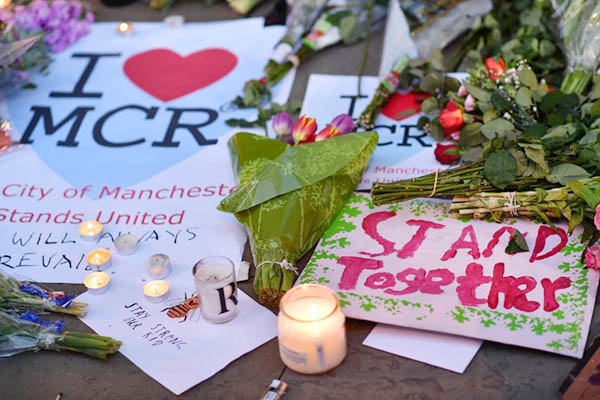
Ben Stansall—AFP
The perils of Muslim ghettos in the U.K.
On May 23, Salman Abedi, a 22-year-old British-born Libyan youth, set off a bomb outside a concert in Manchester city, killing 22 and wounding 59. He belonged to the family of Ramdan Abedi, an Arab refugee from Libya under Gaddafi—he went back in 2011—who was a prayer-leader in a mosque of Manchester’s inward-looking Muslim community. Salman was a lay-about, uninterested in studies and socially isolated, who didn’t miss his daily five prayers. Since Islamic State claimed the massacre, London lost no time in arresting Salman’s brothers in Manchester and Tripoli, focusing on the possibility of a terrorist network behind him. Salman himself had been to Libya recently and could have been primed by Islamic State, which has a strong presence there.
Interviewed by Deutsche Welle, Dr. Elham Manea, who spent four years studying sharia councils in Britain, thinks radicalization takes place in “closed communities” or “ghettoized groups,” organizing themselves along ethnic and/or religious lines. Like elsewhere in Europe, these communities possess “different cultural norms than those prevalent in British society” and are further strengthened by such parallel legal structures as the sharia councils. In larger groupings, as in Birmingham and Bradford, more than 40 percent of the population is Muslim.
About sharia councils, Dr. Manea says: “There are systematic structures that make sure that the youth are separated from their outside environment ideologically. In Quran schools that follow the Deobandi strand of Islam and in their mosques, they tell children not to emulate the unbelievers, not to behave like them, not to love them, not to associate with them.” About Britain’s reluctance to supervise she says: “You would not allow a kindergarten that teaches hate speech. But the moment we say this about a Quran school, everybody will say this is a no-go zone.”
